Marjorie Prime
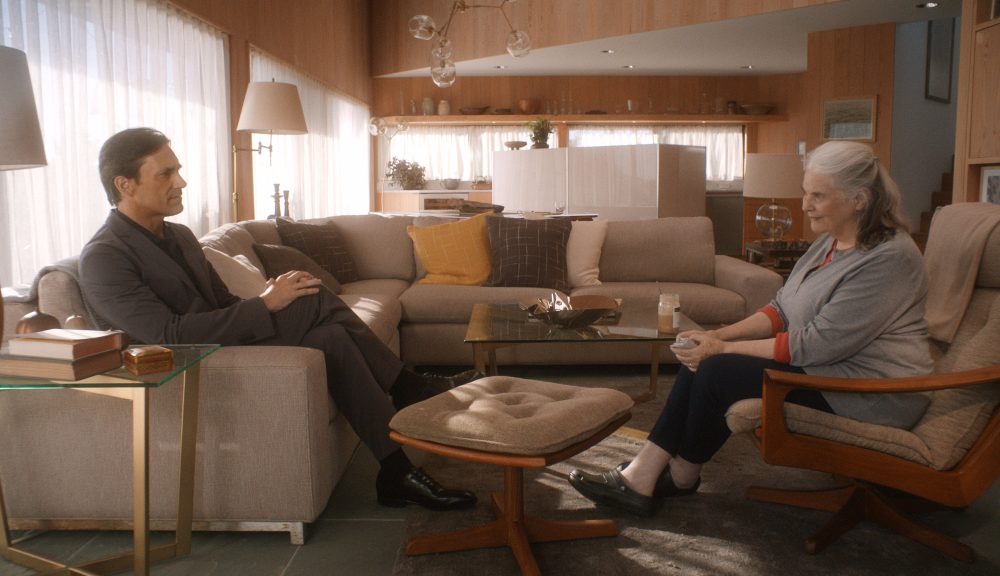
Take the outdated structure of a living room drama and infuse it with the modern obsession with life-like robots and we’ve got quite the intriguing hybrid. The popular stage play transitions beautifully to film in Michael Almereyda’s poignant yet provocative feature that challenges; what are people but the memories of them and, given the chance, what do we choose to remember? The probing family drama Marjorie Prime asks us to take a deep look at the connection between love and loss and the construction of memory within the family unit. A film devoid of any superfluous cheap thrills, we are allowed to simply dive deep into the emotional lives of the characters and for 90 minutes take on their pain and the building of a memory.
Imagine a not-so-distant future where we’re able to bring loved ones back from the dead in order to cope with the grief of losing them. In the world of Marjorie Prime, that’s exactly the case, save for the fact that it’s not the actual person back from the dead but rather a holographic robot that is capable of learning and storing memories fed to it by various family members of the deceased. When Marjorie’s husband Walter passes away, her youngest daughter Tess (Geena Davis) decides to bring in a Walter-Prime (Jon Hamm) to keep her company. As Marjorie (Lois Smith) relives moments of her life with him, we begin to notice the discrepencies between her memories and those of Walter-Prime. The web of sordid family secrets begins to unfold in the follow up sessions Walter-Prime has with Marjorie’s son-in-law, Jon (Tim Robbins), who either has his own different memories of situations or purposefully tries to rewrite the past to make it more pleasant for a dying woman and his fragile wife. As death consumes the family one by one, the Primes begin to learn from each other and the truth is buried under false memories and rewritten histories.
Almereyda is spartan with any theatrical elements he employs, rather allowing the actors to take centre stage and captivate us. In place of flashy sets, elaborate plots, or anything really to break the monotony of heavy dialogue and intensely held moments, he rather lets the actors fill the space of the film with pure, raw emotion and in the end this choice pays off. The deliberate decision to withhold more visual storytelling of the most dramatic events is disappointing at first but upon closer inspection ultimately deepens the experience of the feature. In not witnessing any of the true original moments, we must rely on the memories of the characters. We as the audience are as the Primes, being told and remembering the memories of lives without ever really knowing the truth for themselves.
The theme of adult children coping with the death of an elderly parent could easily have been dry and overdone. Marjorie Prime manages to reexamine the pain and grief of loss from a fresh perspective, the Primes, and in doing so posits an interesting question: What is a person but the memory of them? Knockout performances from the ensemble cast bring together this stunning, painful, and wonderfully inquisitive film that is sure to leave viewers pensive and quite possibly in tears.
Zoe Tamara
Marjorie Prime is released nationwide on 10th November 2017.
Watch the trailer for Marjorie Prime here:
https://www.youtube.com/watch?v=-f8mPQWmIPY


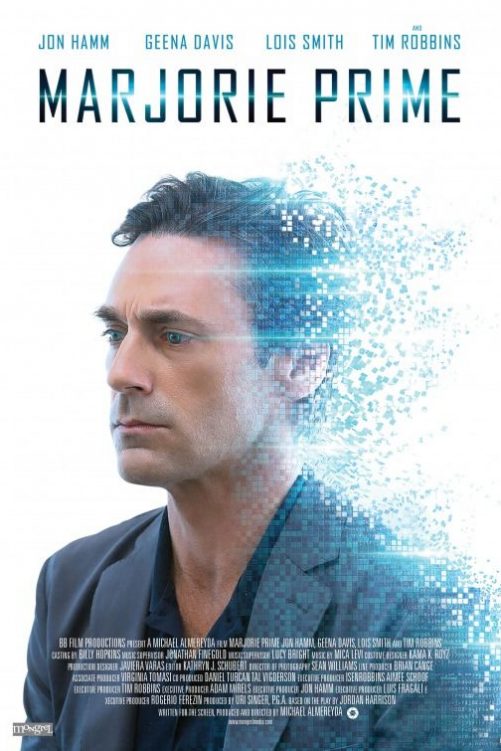

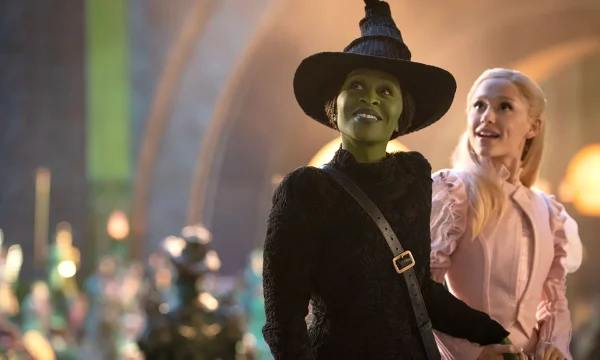
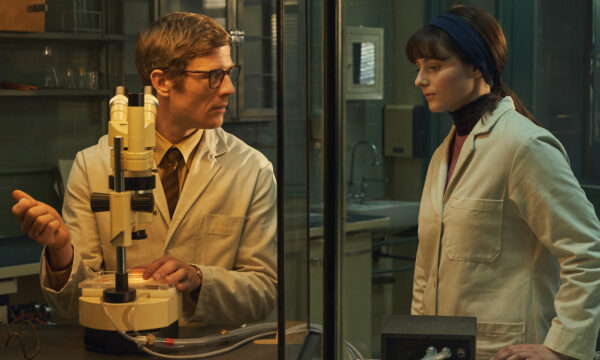
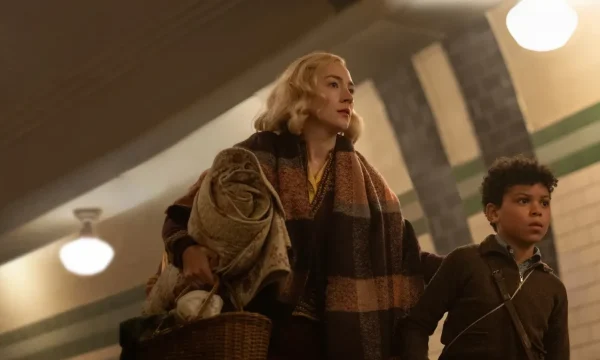














Facebook
Twitter
Instagram
YouTube
RSS